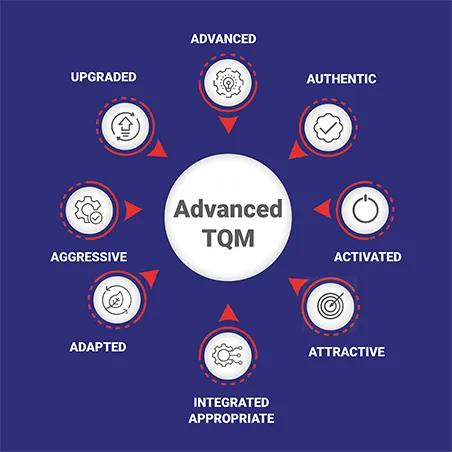
What Are The Different Roles Involved In A Six Sigma Project?
May 31, 2017
What Benefits Can You Have With Green Belt Training?
June 20, 2017Why Should Every Business Implement Quality Management System?
In today’s competitive and challenging world, where the market for every industry is so heavily crowded, businesses need to put in a lot to be noticed and stay successful. There needs to be lot of consideration put into the process, production, time, as well as quality of the products. To brief it up, we can say that every business needs to have a Quality Management System in place if it wants to be successful. This system is a collection of business processes that are focused on achieving quality policies and objectives. The most popularly implemented Quality Management System regimen used worldwide is the ISO 9000 family standard that deals with both quality and sustainability, and their integration. All the policies, procedures, processes, resources, and the entire organizational structure need to implement and abide by the Quality Management System. For the most professional and comprehensive Quality Management System training in India, you can approach TQMI who offers a beautifully designed and practicably implementable course material that can help companies and their teams to easily understand all aspects of standard quality management.
What are the most important benefits of a Quality Management System?
The Quality Management System serves innumerous purposes, with the most important ones being improving processes, reducing wastes, lowering costs, and setting an organization-wide direction. But, this is not all! Implementing a Quality Management System within an organization affects every aspect of the company’s performance. Apart from meeting organizational requirements, the system helps in meeting customer requirements too. This means that it ensures compliance with standard regulations to provide products and services in the most cost-effective and resource-effective manner, in order to grow, expand, and profit. Additionally, it also leads to customer satisfaction, thus leading to more sales, repeat business, and more customers further added into the list.
Why should Quality Control be applied to the entire production process?
There may be lots of products that fail quality at the end of the production process, and have to be returned back, thus adding to wasted money and efforts. This is because quality control is generally applied only at the final step of the production process, just before the product is to be shipped to the customer. Instead, if the quality control procedures are applied throughout the production process, it becomes easier to identify the cause of failure well in advance, thus reducing wasted time and money on the manufacturing procedures to be performed ahead. This will ultimately bring to the forefront the root cause of failure, which when taken action over correctly, will prevent failures all together in the future. Therefore, applying quality control procedures at every phase in the production process decreases the volume of outgoing products that fail quality, thus reducing production costs and increasing savings. However, where a 100% inspection is not practical, at least a sample of the production batch must be tested for quality to instill confidence about the quality of the entire batch or production run.





